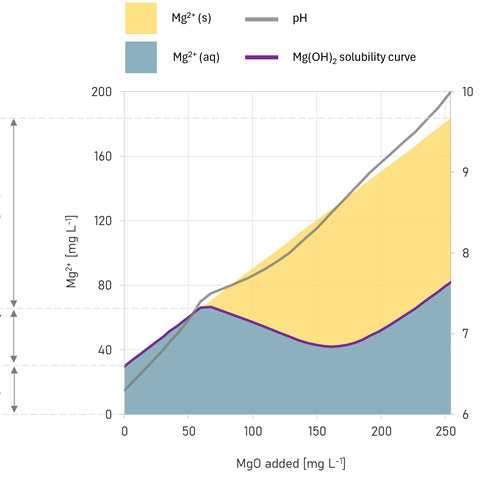An intensive course on the fundamentals of OLI Stream Analyser and its applications in water and wastewater systems.
Course duration: from 3rd June till 16th Aug.
Course code: P000087
Course credits: 4 ECTS
The course is structured as follows:
- One-week of intensive work on the Ultuna campus from 3rd June to 7thJune (equivalent to 1.5 ECTS, 5 days work);
- Self-study work prior to the on-campus meeting in the form of literature reading and home assignment (equivalent to 1 ECTS, 3 days work); and,
- Independent project work after the meetings on campus (equivalent to 1.5 ECTS, 5 days work).
Introduction
In the water and wastewater sector, thermodynamic modelling tools can help analyse complex chemical systems. OLI Stream Analyzer is user-friendly but powerful software package that be used for such analyses. The software simulates processes using a comprehensive thermodynamic database that encompasses a vast array of chemical species, equilibrium constants, and interaction parameters. This database, developed over decades of research allows OLI to accurately predict the behaviour of complex chemical systems. At SLU, even if we conduct research on chemical processes in water, wastewater, and soil systems, there is limited expertise in using software like OLI.
Course Overview
This course will equip PhD students with the fundamentals of OLI Stream Analyser and its applications in water and wastewater systems. The course is organized as a collaboration between SLU research schools (Sustainable systems for food, energy and biomaterials, focus on soil and water), and University of Cape town, South Africa. The course leaders will be Dr. Prithvi Simha (SLU) and Prof. Dyllon Randall (University of Cape Town and August T Larsson Guest Researcher at SLU).
The course will be conducted on campus during five full days (see schedule below). Self-study work prior to the on-campus meeting in the form of literature reading and home assignment will be required. Following the lectures and on-campus exercises, students will conduct an independent modelling project, preferably using experimental data that they have already gathered during their PhD studies. This project is submitted to the course leaders by 16th August.
Intended Learning Outcomes (ILOs) of this course.
Upon completing this course, students will be able to:
- Evaluate thermodynamics and chemical equilibria as applied to water and wastewater systems.
- Skilfully navigate the software OLI Stream Analyzer to calculate equilibrium compositions, phase diagrams, and thermodynamic and transport properties of chemical compounds.
- Design real experiments and processes using thermodynamic models as a guide.
- Simulate real-world problems in water and wastewater treatment, and other areas of environmental science, using thermodynamic modelling.
- Critically evaluate assumptions and limitations of thermodynamic modelling using OLI Stream Analyser
- Identify and solve common challenges and errors encountered during thermodynamic modelling
- Interpret and visualize simulation results through graphical representation and data analysis
Course Schedule
The schedule for the on-campus meetings is as follows:
- Day 1 (June 3rd): Basic thermodynamics, chemical speciation, and water analysis.
- Day 2 (June 4th): Working with the OLI user interface and models.
- Day 3 (June 5th): Practical exercises on chemical speciation modelling.
- Day 4 (June 6th): Students work in pairs on a given modelling problem.
- Day 5 (June 7th): Student presentations and wrap-up on best practices for modelling.
